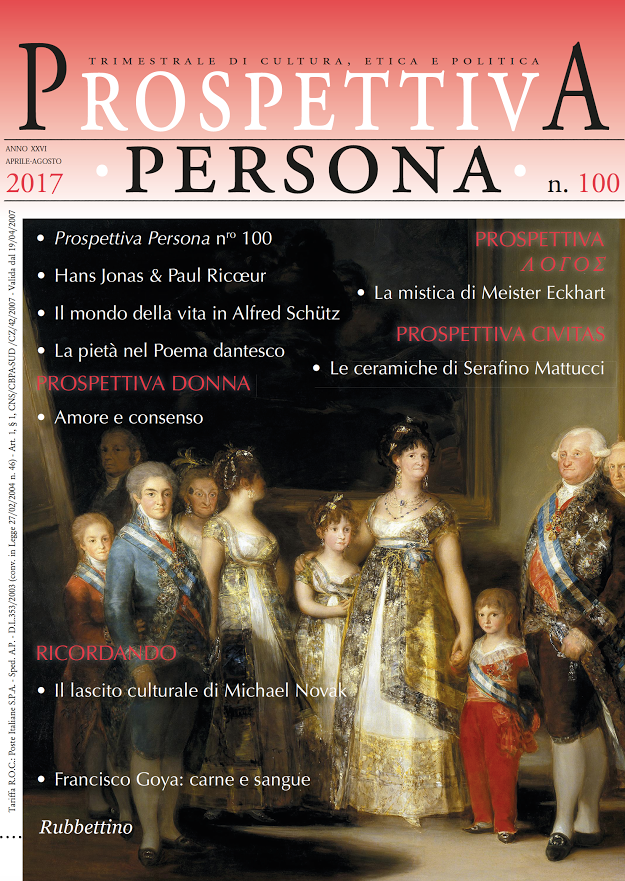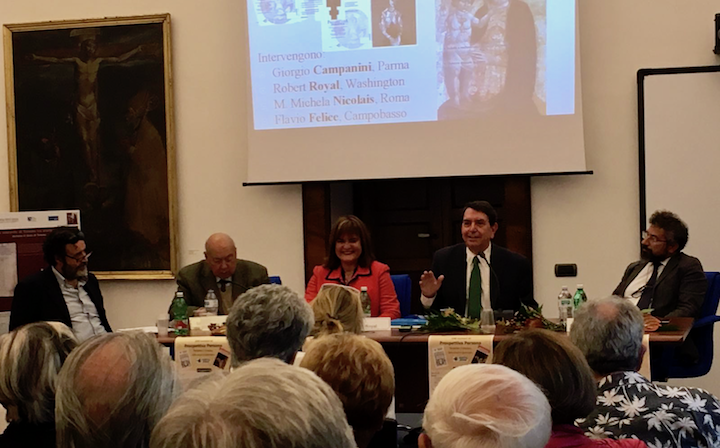People sometimes write me to complain that much online commentary is too negative. That TCT and other sites do not pay enough attention to the many good things happening and to Christian joy.
You can’t be against “joy,” of course, assuming (a large assumption) that you know what authentic joy is. The way the phrase is often used, I admit, strikes me as a somewhat less than fully Christian effort to tell a hedonistic world: Look, we’re having fun too. In my judgment, that hasn’t worked out so well. It may be just me, but like Paul writing to the Thessalonians, I think it safer – and better – on the whole, these days, to keep faith and work quietly.
There are many groups and individuals who do so and never get any notice. I was with one such group last week and hope to help many people hear much more about them. Twenty-five years ago, in the immediate afterglow of the fall of Communism and of John Paul II’s encyclical Centesimus Annus – which reviewed the disasters of the previous century and tentatively sought a way forward – a remarkable married couple decided that the work necessary to the reconstruction of civilization had not ended with the Cold War. Indeed, it had just barely begun.

This month they published the 100th number of their quarterly magazine, Prospettiva Persona (“Perspective on the Human Person”), and also announced – not their retirement, but their new roles as contributors and counselors to the new editor Flavio Felice (a sometime contributor to The Catholic Thing and old friend to many of us). Flavio, a man of many talents, is the youngest person ever to receive tenure at the Lateran University in Rome, where he teaches Catholic Social Thought.
Giulia Paula di Nicola and Attilio Danese met and married as undergraduates, went to study philosophy – Hegel of all things – in Germany, but like other earnest seekers of wisdom in the twentieth century, decided that much modern philosophy was too stretto, i.e., narrow. They found their way – like Jacques Maritain, Dietrich von Hildebrand, Gabriel Marcel, Edith Stein, Emmauel Mounier, Karol Wojtyla (later JPII), and many others – into the “personalist” currents of modern philosophy. And founded Prospettiva Persona, significantly not in Rome, but on the opposite coast of Italy, in the city of Teramo.
Many people hear “personalist” and think (despite the luminaries mentioned above) that the name probably means subjectivism and relativism. This is not only incorrect, it’s the very opposite of the truth. The best personalists recognize the crucial role of objective, rational thought, but also acknowledge the fact that truths come to importance in the lives of persons – which is to say, in each of us.
Indeed, without interactions with other persons, none of us would even know – literally – how to speak, since no one teaches himself to talk. And we would never know or do much of anything because our minds and hearts are formed in relation to others – at the very highest level, in relation with the three Persons in the Trinity.
All persons are by nature inter-personal. So true is this that Chesterton once said, only half-jokingly, that we read in Genesis that it is not good for man to be alone. But the Christian doctrine of the Trinity says, in a way, that it is not even good for God to be alone – as we sometimes see in the oppressive forms a strict monotheism, such as Islamic fundamentalism, can take.
Indeed, you might say that finding the right balance between the objective and the personal in our times is one of the principal philosophical tasks. As Cardinal Newman famously put it:
Science gives us the grounds or premisses from which religious truths are to be inferred; but it does not set about inferring them. . .that is not its province. It brings before us phenomena, and it leaves us, if we will, to call them works of design, wisdom, or benevolence; and further still, if we will, to proceed to confess an Intelligent Creator. . . .This is why Science has so little of a religious tendency; deductions have no power of persuasion. The heart is commonly reached, not through the reason, but through the imagination, by means of direct impressions, by the testimony of facts and events, by history, by description. Persons influence us, voices melt us, looks subdue us, deeds inflame us. Many a man will live and die upon a dogma: no man will be a martyr for a conclusion. (Tamworth Reading Room)

So a quarterly journal that takes its perspective from that richer Christian idea of the person, where “heart speaks to heart” under the aegis of truth, has its work cut out for it. Prospettiva Persona responded to the challenges on multiple fronts, year after year, for a quarter century now, with insightful and accessible essays on theology, philosophy, society, culture, ethics, art, music, even feminism (in a much more interesting form than what that term has come to mean in most Western country).
We’re in serious trouble in the West, but without initiatives like this, we would be much worse off.
Danese/diNicola, by the sheer force of their enthusiasm and cultural curiosity have created a network of collaborators in fifteen different countries, and from the very first drew world-class figures to the cause: Mounier himself, the anti-Gnostic scholar Hans Jonas, and the first Honorary President of the journal’s publication committee, the great Christian philosopher Paul Ricoeur.
On Thursday last week, I became Honorary President myself – partly because I happened to learn Italian as a young man, but mostly, I think, because an American dimension is now important to such work, and Europeans are no longer reluctant to recognize it.
But we Americans need to recognize, in turn, the deep need for the kind of Christian personalism that our European friends have kept alive. And that we should now advance together.















